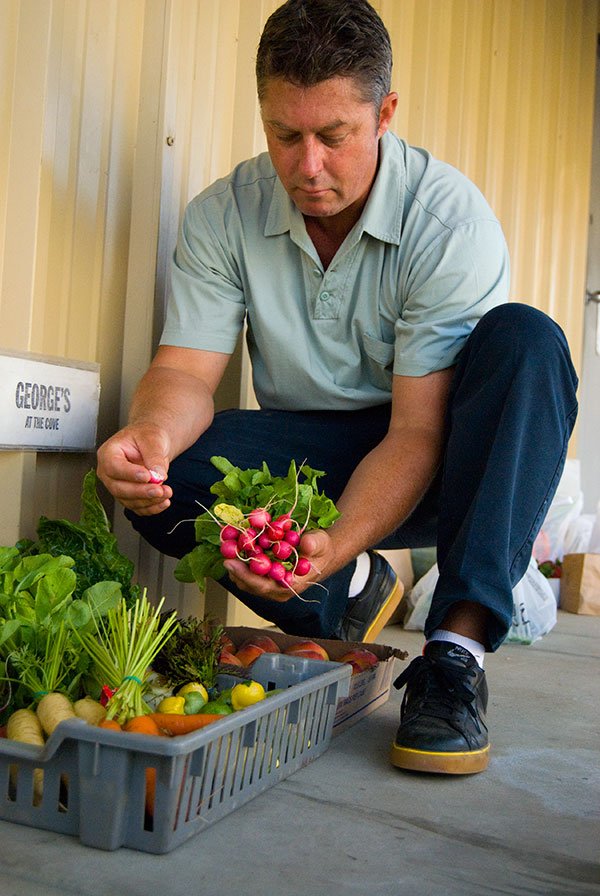A Look Inside Chino Farms
When people ask me what sets San Diego dining apart from other cities, my answer is always “Chino Farms.” Other cities have more restaurants, or perhaps better restaurants—New York, Chicago, San Francisco and Los Angeles all come to mind. But, Chino Farms, arguably the best family farm in the U.S., is in my backyard, not theirs. And Chino Farms will not deliver or ship, no matter who you are.
Now, I can’t say that the reason I ended up in San Diego was due to Chino Farms, but it was an added benefit that weighed in on my decision to come to George’s at the Cove.
When I took over the kitchen at Rockenwagner Restaurant in Santa Monica in 1991 and started making weekly pilgrimages with my then sous chef Yoshi Kojima, my relationship with the Chino family began, and my appreciation and total respect for what they do and stand for grew with each visit.
Chino Farms is located in Rancho Santa Fe, one of the most exclusive neighborhoods in the country, full of enormous homes, with very long driveways and private clubs. That the farm sits in the middle of this, on extremely valuable land, is a testament to what the Chino’s stand for—an unabated appreciation and complete understanding of how to grow vegetables and certain fruits to their maximum potential. They could easily sell their land and retire handsomely; instead, they choose to open the stand every morning and sell their produce to the people of Rancho Santa Fe, San Diego and visitors who’ve heard about the farm and want to see it for themselves. Everyone stands in line, no matter who you are, and everyone pays cash. Once you get out of your car, you are equal to everyone else.
The Chino's have a reputation for not being very friendly to chefs. My feeling is that chefs who truly understand what the Chino's stand for and try to continue their vision on the plate are the ones who become friends or at least long-term customers. Chefs who come with an ego, or do not show respect, do not end up doing business with them. The Chino’s do not suffer fools.
I have had the fortune to cook for the Chino’s several times, and I confess that I am more nervous cooking for them than for any chef, food writer or critic. It is one of the few times I feel I can give back to them what they give to me by preparing a meal that shows respect to their ingredients. It is without a doubt my most anxious moment, and also my most fulfilling.
I realize this may sound like another chef blathering on about ingredients, but like all creative types the real story is what makes the person, not what the person makes.
The Chino’s respect for their Japanese heritage, their family and their earth is what makes them who they are, and that is why I have purposefully not discussed their products in detail, listed the chefs who work with them or spoken about the numerous experiences I’ve had during my relationship with them—many of which are very funny.
My ultimate hope is that this will give you the incentive to visit the farm yourself, and to begin to cultivate your own relationship with them in whatever form it takes.



